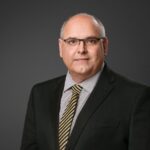
The Baker Act: Involuntary and Voluntary Hospitalization
The Baker Act: Involuntary and Voluntary Hospitalization
Information
Date & Time
-
-
Location
-
Ft. Lauderdale Behavioral Health Hospital
5757 Dixie Highway
Oakland Park, FL 33334
Learning Objectives
Participants will be able to:
-
Summarize the Florida Mental Health Act.
-
Define involuntary hospitalization and voluntary hospitalization.
-
Compare involuntary and voluntary hospitalization, noting at least 2 differences.
Educational Goal
The educational goal of this workshop is to provide attendees with a general overview of the Baker Act, including the details of the functions of involuntary and voluntary hospitalization procedures.
Description
This presentation will focus on The Florida Mental Health Act, known to most as the Baker ACT. The presenter will explain the purpose, function, and legal issues set forth in the Baker Act. The presenter will also share his professional experience as a hospital administrator and clinician working within mental health law for over thirty-four years.
Target Audience
- Addiction Professional
- Addiction Professional
- Counselor
- Counselor
- Marriage & Family Therapist
- Marriage & Family Therapist
- Psychologist
- Psychologist
- Social Worker
- Social Worker
Presenters

Miguel Fernandez, LCSW, CADC received both his Master of Social Work and Bachelor of Science degrees from Florida State University. Miguel went on to obtain a license in Clinical Social Work. His experience as a Licensed Clinical Social Worker and Certified Alcohol and Drug Counselor are apparent in his dedication to patients and staff in every interaction.
Miguel has over 34 years of experience in the behavioral health field. He began his career as a Mental Health Technician and has worked in various clinical roles including, admissions/discharge coordinator, case management, and medical, psychiatric, and administrative social work in both the mental health and substance abuse fields. He has experience in a wide variety of settings including: Veterans Administration, Department of Juvenile Justice, Inpatient Mental Health programs, and behavioral health hospitals, which give Miguel a pervasive understanding of the ever-changing and developing field of behavioral health.
In addition to his front line clinical roles, Miguel has worked in multiple administrative roles over the last 20 years. He has also worked in the academic setting as an adjunct professor.
Miguel’s executive leadership experiences include being a Deputy Commissioner, a Chief Operating Officer and a Chief Executive Officer. Miguel is proficient in both English and Spanish, and has been decorated with many special recognitions.